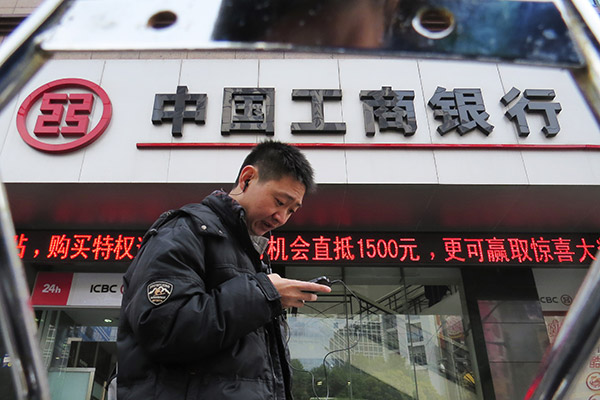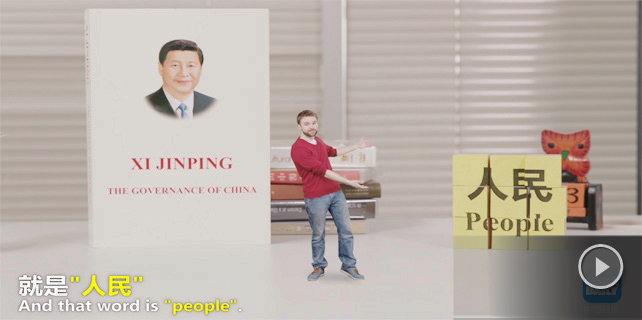Loan rate hikes loom as risk management in focus
 |
|
A man passes by a branch of Industrial and Commercial Bank of China Ltd, the nation's largest lender, in Shanghai on March 7, 2014. [Photo/China Daily] |
With net interest margins at a six-year low, banks change lending strategies
As policymakers remain intent on pushing financial deleveraging and curbing risk, the money market may face stricter regulation, higher financing costs; and lenders face a challenge to make profit as interest rate margins shrink and non-performing loan risks expand.
After Chinese lenders' net interest margins fell to a six-year low during a campaign to liberalize interest rates, banks are changing their lending strategies with a focus on quality instead of quantity, and attaching more importance to risk management, according to researchers.
Ma Kunpeng, an analyst with China Merchants Securities Co Ltd, said: "The rising cost of financing in the short-term is a natural result for the capital market, which is likely to push up loan rates, as lenders make every effort to suspend narrowing of an already lean interest margin."
According to the latest quarterly report on lenders' performances by the China Banking Regulatory Commission, the average interest rate margin of China's banking sector was roughly 2.22 percent by the end of 2016, its lowest point in the past six years.
The Shanghai Interbank Offered Rate, a benchmark for money market liquidity and interest rate margin trends, shows that the three-month interbank lending rate has been rising steadily since the beginning of 2017 to more than 4.2 percent at present, its highest point in the past 18 months.
Since the beginning of 2017, policymakers have sent out a series of signals focusing on curbing speculation by suspending repo and pushing up medium-term lending rates, using various tools to squeeze out bubbles in the market, according to a research report by Gao Ting, an analyst with UBS.
In a research note by United Overseas Bank Ltd, analysts said these policy signals may also be reinforced in the form of slower growth targets for total social financing.
"We expect the People's Bank of China to keep its benchmark interest rates (one-year lending and deposit rates) unchanged this year, leaving the banks to adjust to the reality of higher money market interest rates (prices)," the research note said.
In addition to the traditional monetary policy toolbox, the central bank is also likely to tighten policy via the macroprudential assessment framework to curb asset price bubbles and prevent excessive financial speculation, the report said.
In such circumstances, lenders are likely to raise rates for borrowers.
Jiang Chao, analyst with Haitong Securities Co Ltd, said: "We see home loan interest rates starting to grow, and for enterprises, loan rates are likely to grow too."
As interest rates are further liberalized, the rate margin is likely to become thinner as competition hots up.
For banks, the real game is just beginning as the market environment pushes every player to sharpen competition in risk management and product offering, said a research note from Ping An Securities Company Ltd.









